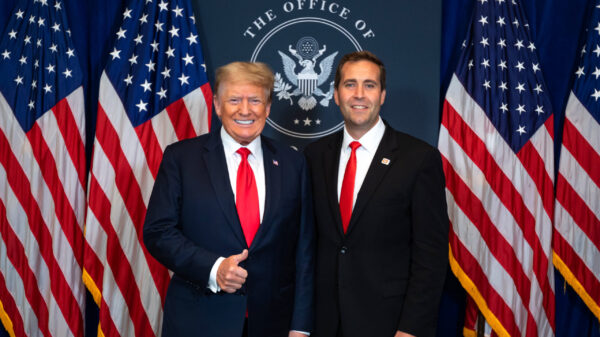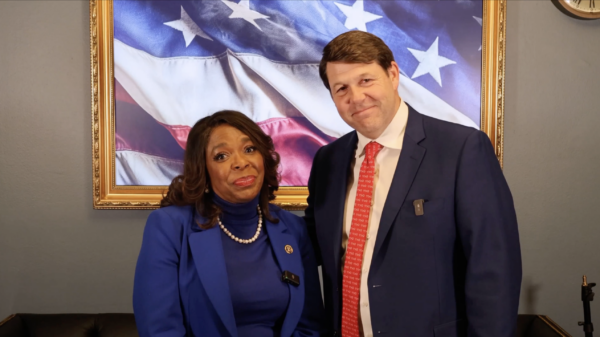Sen. Katie Britt, R-Alabama, questioned Education Secretary Linda McMahon during a Tuesday Senate hearing on how her department will work to expand educational opportunities.
During a Senate Appropriations Labor, Health and Human Services, Education and Related Agencies Subcommittee hearing, Britt asked McMahon what steps her department is taking to improve educational opportunities at historically Black colleges and universities.
Britt highlighted Alabama’s position as the U.S. state with the most HBCUs. She also pointed to the roughly 285,000 individuals who attend HBCUs nationwide, questioning what the 2026 fiscal year budget would do to help HBCUs.
“We are continuing the educational support and the budget support that have been for HBCUs. It’s one of the promises that the president made, and that’s exactly what we’re going to continue to do,” McMahon responded to Britt’s question.
McMahon also told Britt the Department of Education will continue to provide HBCUs assistance with grant administration and technical aid.
Britt’s office pointed to an April executive order signed by President Donald Trump aimed at fostering public and private sector partnerships “to promote centers of academic research and program excellence at HBCUs.”
Britt argued the initiative is a continuation of steps taken during the first Trump administration “to elevate and support HBCUs.”
The executive order establishes the President’s Board of Advisors on Historically Black Colleges and Universities.
The executive order calls for the advisory board to work alongside executive agencies and the White House Initiative on HBCUs to foster collaboration with “educational associations, philanthropic organizations, and other partners to increase the capacity of HBCUs to provide the highest-quality education to an increasing number of students.”
Critics of the executive order and Trump’s educational policies, meanwhile, have questioned the legitimacy of the president’s commitment to supporting HBCUs.
In an op-ed for the Mississippi Free Press, writer Duvalier Malone criticized the order’s lack of long-term financial investments in HBCUs, alongside staffing cuts to the Department of Education’s Office for Civil Rights and the rollback of Obama-era guidance on affirmative action and campus sexual assault during the first Trump administration.
“We must demand more than ribbon-cutting ceremonies and photo ops,” Malone wrote. “Real support for HBCUs means restoring Department of Education funding. It means strengthening civil-rights enforcement. It means ensuring equitable access to Pell Grants, campus safety resources and faculty development.”
Britt also asked McMahon how her department’s proposed $60 million budgetary increase for charter school programs in the 2026 fiscal year will be used to expand educational options particularly amongst rural communities.
“It’s very important to the president that all students have access, equal access, to a quality education,” McMahon responded. “One of the things that he has said, time after time, is that no child should be trapped in a failing school, which is one of the reasons why he wanted to expand the amount of dollars for charter schools.”
McMahon described the curriculum of charter schools she’s visited so far as Secretary of Education as “innovative and creative.”
“In most instances, they are outperforming the public schools in that area,” McMahon claimed.
McMahon also argued greater access to charter schools increases competition amongst public schools, improving educational outcomes.
“I am a public school kid, and I’m really proud of it,” Britt responded. “I want to make sure that where we have children who are trapped in a failing school, that they have an option and an opportunity and a pathway forward because education is the great equalizer.”
Britt ended her questioning of McMahon by asking how she’ll work to improve literacy rates across the country.
Britt pointed to the 2019 passage of the Alabama Literacy Act and the subsequent improvement of the state’s fourth grade reading ranking from 49th to 34th in the nation.
“Evidence-based literacy is number one on my priority list,” McMahon responded to Britt’s inquiries. “And I want to make sure that we are providing the information and the tools to states for them to see the success that other states have had.”
















































